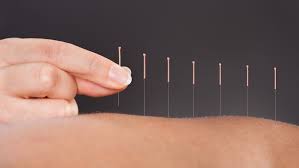
You’re not alone if you’ve ever wanted to know what acupuncture is. Acupuncture is a traditional Chinese medicine used by millions worldwide for everything from pain to headaches. Regardless of your beliefs about the effectiveness of acupuncture, this guide will help you better understand what acupuncture is and how it can benefit you.
Traditional Chinese medicine:
The foundations of Traditional Chinese medicine are rooted in a philosophy that focuses on the balance of forces in the human body known as qi. When qi is out of balance, it can lead to disease or pain. This is why TCM treatment focuses on restoring this balance.
Treatments:
Acupuncture treatments are a great way to improve your wellness regimen. They can help with many health issues, from sleep issues to pain. You can also benefit from acupuncture if you’re struggling with fertility challenges. In addition, acupuncture can help with TMJ pain and digestive issues.
Symptoms:
Acupuncture has several beneficial effects on the body. For example, it can reduce the stomach’s acid and regulate bowel contractions. In addition, it may reduce stress, which can worsen gastrointestinal symptoms. In some cases, acupuncture can even help with irritable bowel syndrome. However, further studies are needed to see how acupuncture can help bowel conditions.
Many people experience anxiety. Tens of millions of Americans suffer from anxiety each year. And as life becomes more stressful, these symptoms can become even more intense, making it difficult to live a normal life. Acupuncture can help ease stress by balancing the body and mind.
Risks:
While acupuncture is an ancient medicine, it can be associated with some risks. Acupuncture needles penetrate the skin and can result in bleeding and bruising. Although these side effects are rare, they can be uncomfortable or fatal. Moreover, it is also possible that acupuncture can harm an unborn fetus. In addition, acupuncture treatments can cause a lack of adequate diagnosis and treatment if they are not administered by a trained professional.
The risks of acupuncture are minimal, but it’s worth noting that a qualified practitioner can help minimize any possible complications. Several professional organizations help you find a qualified practitioner in your area. Additionally, some conventional medical practitioners perform acupuncture. Be sure to inform your doctor about any other treatments you may receive.





